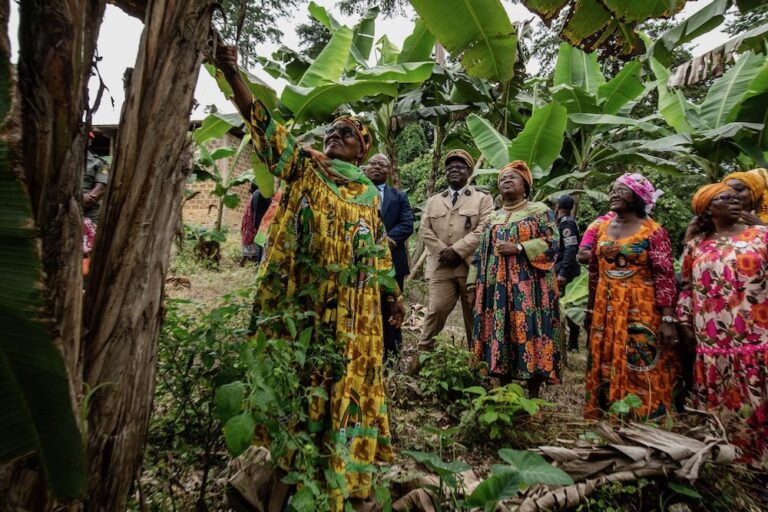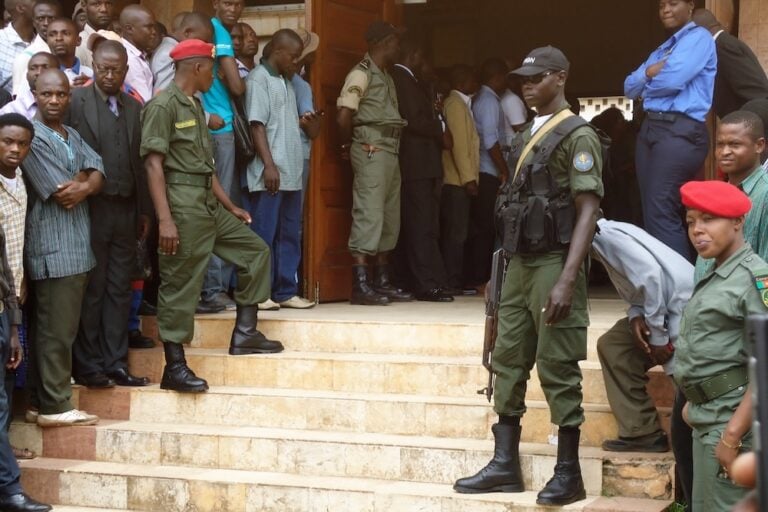(RSF/IFEX) – On 16 June 2002, border police at Douala International Airport in Cameroon confiscated journalist Pius Njawé’s identity papers. Njawé is director of Le Messager Press Group. “Pius Njawé is once again the victim of harassment by the Cameroonian authorities. This measure constitutes a de facto travel ban, and is therefore a serious attack […]
(RSF/IFEX) – On 16 June 2002, border police at Douala International Airport in Cameroon confiscated journalist Pius Njawé’s identity papers. Njawé is director of Le Messager Press Group.
“Pius Njawé is once again the victim of harassment by the Cameroonian authorities. This measure constitutes a de facto travel ban, and is therefore a serious attack on press freedom and the free movement of persons,” RSF Secretary-General Robert Ménard said in a letter to Delegate General for National Security Minlo Medjo. RSF asked the authorities to return Njawé’s identity papers immediately.
According to information collected by RSF, Njawé returned to Cameroon on 16 June after a six-month stay in Great Britain. When he presented his papers at immigration, the border police officer took the documents and handed them over to the chief administrator of Douala Airport. The chief administrator refused to provide an explanation to Njawé, who then left the airport. The police confiscated the journalist’s passport, national identity card and driver’s licence.
RSF recalls that Njawé spent ten months in prison between December 1997 and October 1998. He was convicted of “spreading false information” after writing and publishing an article in “Le Messager” in which he stated that President Paul Biya had suffered heart trouble while attending the Cameroon Cup soccer final (see IFEX alerts of 13 October, 11 September, 24 and 2 June, 7 May, 23 and 14 April, 19 February, 14 and 13 January 1998 and 24 December 1997).


